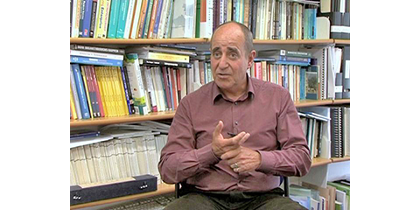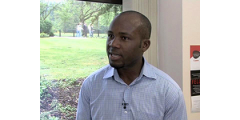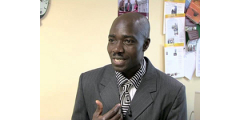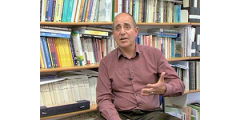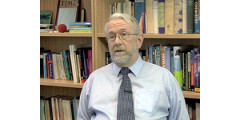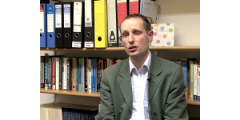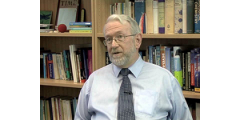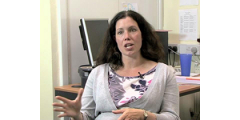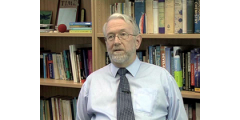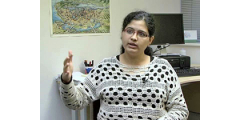Strategies to address a reluctance to ask questions in lectures
November 24, 2009
Video >> Martin Binks: “People are often too shy to raise issues, but one of the things that I tend to do periodically through the lectures is just say ‘Right, you’ve got two minutes. Talk to the person next to you, behind you, in front of you, whatever, and work out what you think the …
Inclusivity as a basis for group discussions
Video >> Kingsley Udeh: “Interaction in the class or the seminar is very important. No. 1 is that it ventilate your doubt about certain areas, you say your ideas, in fact sometimes you think an idea is correct, but when you say it during discussion you discover that it’s not right or that it’s not …
International perspectives broaden a class debate
Video >> Interviewer: “What do you get out of a discussion?” Eric Masika: “I get different views of how to look at same thing. We’re looking at something same, but you have a different opinion about it, I have my opinion and we all pool together our experiences, it makes a new thing.” Chris Ennew: “The kind of …
Preparing groups to manage themselves
Video >> Martin Binks: “I have to spend a bit of time at the beginning of the first four lectures talking to the whole group, or rather in two large groups, and explaining to them why we’re doing what we’re doing, the way that we’re doing it, and what I’m hoping they will actually get …
Mixing international students and home students for small group study
Video >> David Clarke: “Talking to international students, the ones I’ve discussed this with, they are quite strongly of the view that they come to meet and mix with home students, students from other cultures, and that for a lot of them, I think, the idea that they, they seem to mix with their own …
Learning academic writing and skills of argument
Video >> Iain Coyne: “Our good students really get the element of discussion and critical debate and argument into their essays and coursework, you can clearly see that they’ve thought about it. And I think that most of our criteria that we mark and assess, that one distinguishes the excellent from the less good students, …
Valuing the student voice: the tutorless tutorial
Video >> David Clarke: “I’m particularly mindful of the difficulty of getting everybody to participate in a way they’re comfortable with, and getting them to believe that we genuinely want to hear the student’s voice. I think the difficulty for so many students, and it’s not a peculiarity of international students, is they either don’t …
Critical thinking: developing students’ independence
Video >> Rebecca Moor: “My sense is that they come to study law here and they’re expecting someone to say Okay, welcome to law school. Here’s the answer, it can be this or it can be that. And what they get instead is someone throwing a huge amount of law at them and essentially saying, …
Graduate qualities: transferable skills and intercultural competence
Video >> David Clarke: “I think the thing that the best university students do in my view and what marks them out, is that they ask themselves the question continuously, What is it I need to know and how can I find it out? rather than I wonder what the teacher is going to tell me …
The lecturer-student relationship
Video >> Swetha Aknoor: “If you look at the Indian culture, technically, our teachers supposed to be as God for us. We have this thing, you know, the father, the mother and the teacher are all God. So yeah, our teachers, we do have to have a lot of respect for them, we can’t take …

